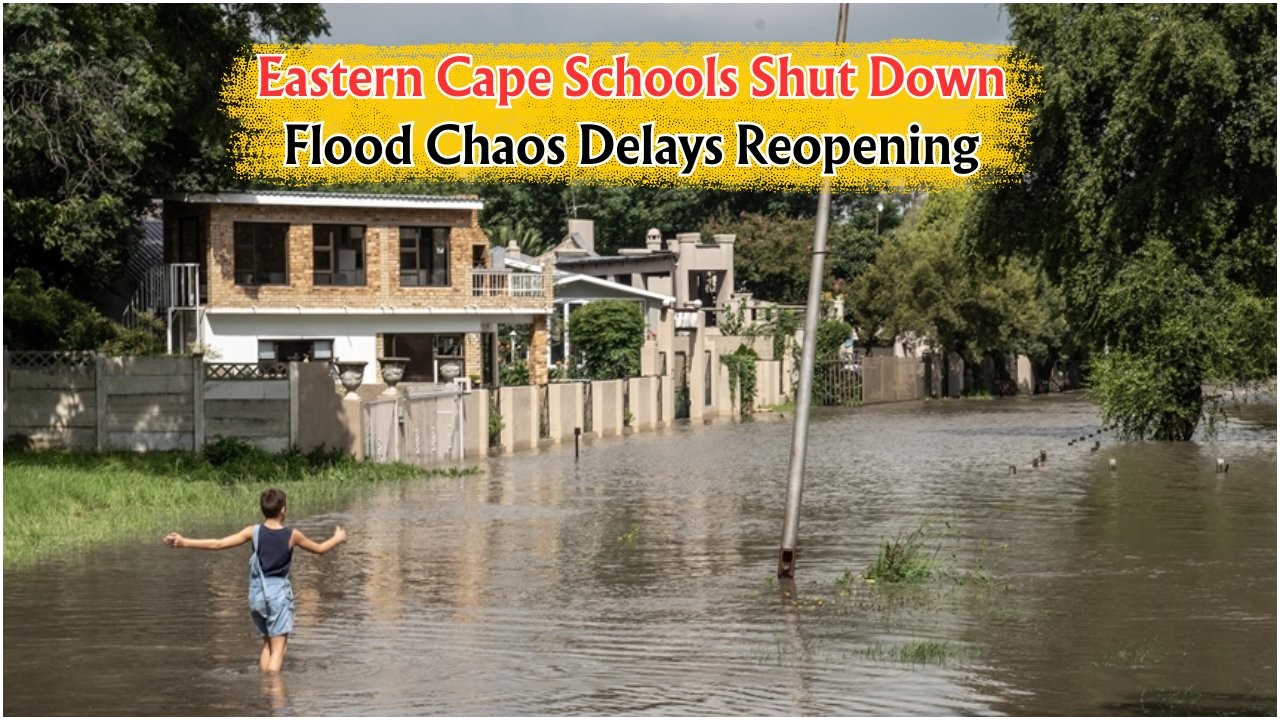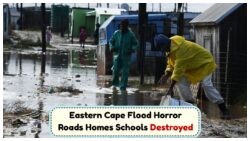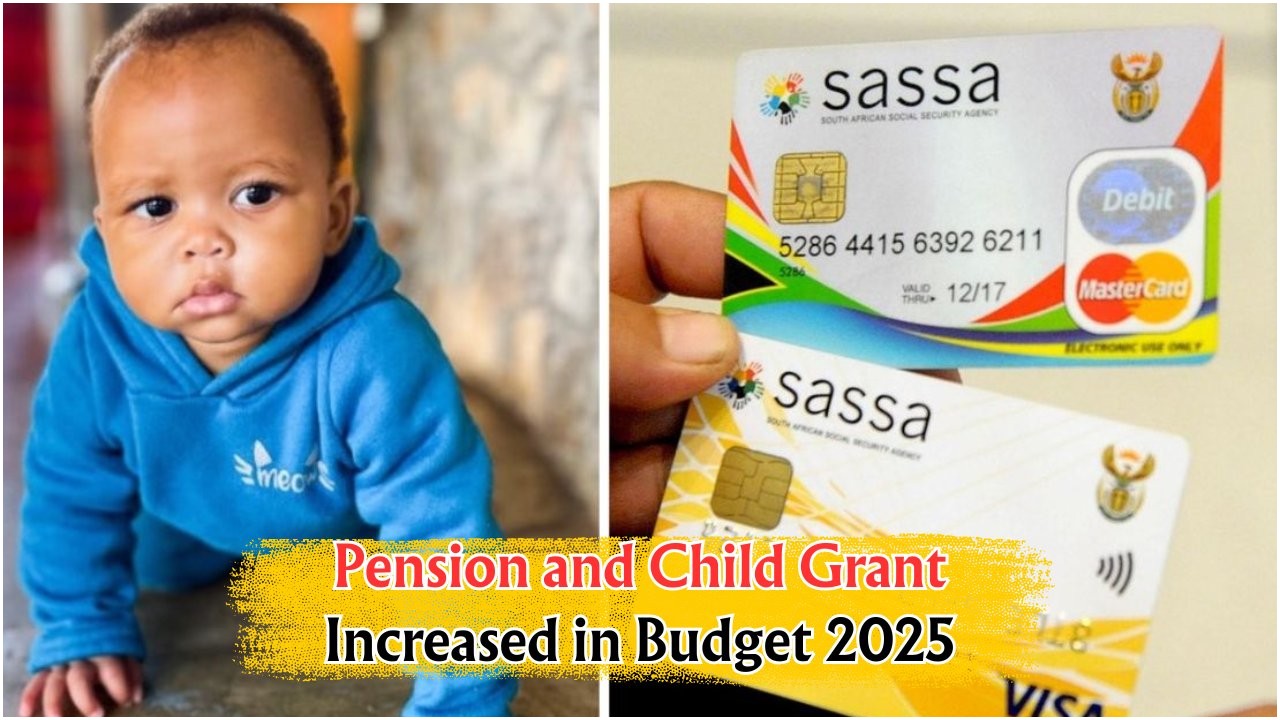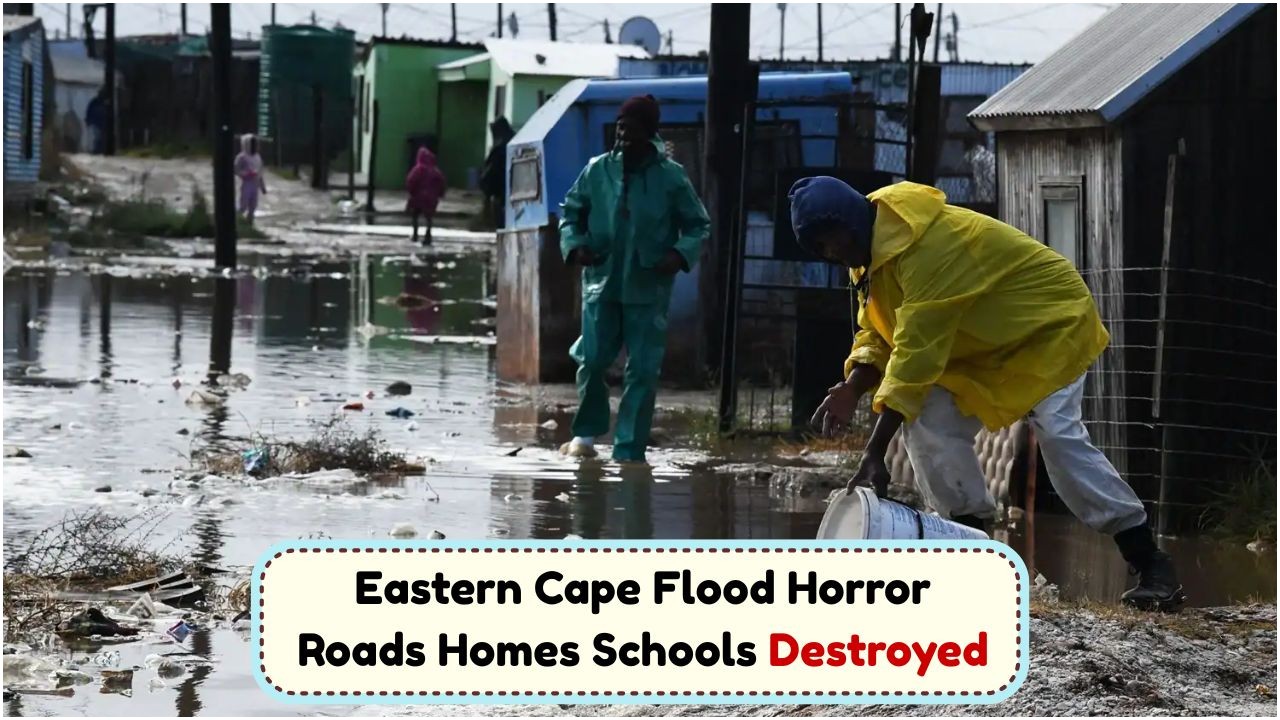Eastern Cape Floods School Reopening Delay: The recent spate of floods in the Eastern Cape has once again underscored the challenges faced by local communities. As torrential rains swept through the region, many schools found themselves severely impacted, leading to the postponement of reopening dates. Initially set to welcome students back, schools have now been forced to delay reopening until 22 July. This decision was made in light of the severe damage to infrastructure, including roads and buildings, which has rendered many areas inaccessible. The safety and well-being of students and staff remain the top priority as authorities work tirelessly to restore normalcy and ensure a conducive learning environment.
Impact of Floods on Eastern Cape Schools
The devastating floods in the Eastern Cape have had a profound impact on the education sector. Schools in the region have suffered significant damage, with classrooms flooded and essential educational materials destroyed. The infrastructure damage extends beyond school premises, as roads leading to these institutions have been severely affected, making it challenging for students and teachers to commute. The Department of Education is actively assessing the extent of the damage and is in the process of deploying resources to expedite repairs. However, the sheer scale of destruction means that some schools might remain closed beyond the initial reopening date.
- Flooded classrooms and damaged school buildings.
- Destruction of educational materials and resources.
- Impassable roads affecting student and teacher commutes.
- Ongoing assessments by the Department of Education.
Government Response to Eastern Cape Floods
In response to the Eastern Cape floods, the South African government has mobilized various agencies to provide immediate relief and long-term recovery plans. Emergency services have been deployed to assist in evacuation and relief operations, while the Department of Education is focusing on ensuring that schools are safe for reopening. The government has also called on non-governmental organizations and the private sector to contribute resources for relief efforts. The collaboration between these entities is crucial in addressing the urgent needs of affected communities and ensuring that students can resume their education with minimal disruption.
| Agency | Role | Focus Area | Resources Deployed | Current Status | Future Plans |
|---|---|---|---|---|---|
| Emergency Services | Evacuation | All affected areas | Rescue teams | Ongoing | Continued support |
| Department of Education | School repairs | Flooded schools | Funding and manpower | Assessment phase | Completion by July 22 |
| NGOs | Relief aid | Displaced families | Food and supplies | Active | Extended aid |
Community Efforts in Flood Recovery
The resilience of the Eastern Cape communities has been a beacon of hope amidst the floods. Local residents have come together, forming volunteer groups to assist in cleanup operations and provide support to those most affected. Community centers have been converted into makeshift shelters for displaced families, offering a temporary refuge as they rebuild their lives. The spirit of Ubuntu is alive and well, with neighbors helping neighbors in this time of crisis. These grassroots efforts are vital, complementing the broader recovery initiatives spearheaded by the government and NGOs.
 South Africa's 2025 Budget Brings Relief: Pensioner Grants Rise to R2,315, Child Support Hits R560
South Africa's 2025 Budget Brings Relief: Pensioner Grants Rise to R2,315, Child Support Hits R560
- Volunteer groups aiding cleanup efforts.
- Community centers serving as shelters.
- Local fundraising initiatives for relief.
- Increased community collaboration.
Long-Term Solutions for Flood Prevention
While immediate relief is critical, long-term solutions are essential to prevent future flooding in the Eastern Cape. The government, in collaboration with environmental experts, is exploring sustainable measures to mitigate flood risks. These include improved drainage systems, reinforced infrastructure, and better urban planning to accommodate heavy rainfall. Additionally, there is an ongoing dialogue about climate change adaptation strategies, emphasizing the need for community resilience and awareness.
| Solution | Description | Implementation Timeline | Responsible Party |
|---|---|---|---|
| Improved Drainage | Upgrading existing drainage systems | 2 years | Municipal authorities |
| Reinforced Infrastructure | Strengthening roads and buildings | 5 years | Public Works Department |
| Urban Planning | Designing flood-resilient communities | Ongoing | City planners |
Educational Initiatives Post-Flood
As schools prepare to reopen, educational initiatives are being introduced to address the setback caused by the floods. Supplementary classes and online resources are being made available to help students catch up on lost time. Teachers are receiving training to support students emotionally, recognizing the trauma many have experienced. These initiatives aim to provide a supportive educational environment, ensuring that learning continues despite the disruptions.
- Supplementary classes for affected students.
- Online resources to complement learning.
- Teacher training for emotional support.
- Focus on trauma-informed education.
Local Businesses Helping with Flood Relief
Local businesses in the Eastern Cape are stepping up to aid flood relief efforts. Many companies are donating essential supplies such as food, clothing, and building materials to affected communities. Additionally, some businesses are offering financial assistance and volunteering their employees to participate in relief operations. This collaboration between the private sector and the community is crucial in accelerating recovery efforts and demonstrates a strong commitment to social responsibility.
- Donations of essential supplies.
- Financial assistance from businesses.
- Employee volunteer programs.
- Collaboration with local NGOs.
FAQ on Eastern Cape Floods and School Reopening
When will schools in the Eastern Cape reopen?
Schools are scheduled to reopen on 22 July, subject to infrastructure repairs.
How can the community help with flood recovery?
Community members can volunteer in clean-up efforts and donate supplies.
What measures are being taken to prevent future floods?
Improved drainage and reinforced infrastructure are key focus areas.
How are students being supported post-flood?
Supplementary classes and emotional support initiatives are in place.
Are there any government relief programs available?
The government is coordinating with NGOs to provide immediate relief and long-term recovery support.






